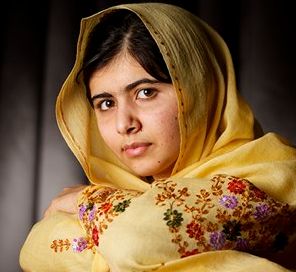Here are two figures, and given how anyone who has been sexually assaulted is likely to feel about the experience, they have to be low-end estimates: the latest Pentagon numbers indicate that about 26,000 men and women (but mainly women) in the U.S. military “were sexually assaulted in 2011, up from 19,000 in 2010”; and the figure regularly cited, even by President Obama and Vice President Biden, is that one in five college women either experience an attempted sexual assault or are raped in their years on campus.
While these numbers can be argued about, they are striking evidence that, so many decades after the modern feminist movement was launched, the gender wars (male version) continue at levels that should shock anyone. Or thought of another way: for a surprising percentage of women in the twenty-first century, every career path seems to end in the same grim place.
Fortunately, in Men Explain Things to Me, just published today, TomDispatch regular Rebecca Solnit offers a striking and hopeful assessment of where the feminist movement is now, and of the ways of thinking it has made so antiquated that none of us can return to them, no matter the pressures. Her new book on the gender wars, from which today’s post is taken, offers a fresh look at feminism a half-century later. She suggests that, whatever has yet to be won, by changing our assumptions feminists have already insured that the biggest battle of all is in the past. That women are equal to men and deserve equal rights as well, as Solnit points out, is no longer an earth-shattering idea, and that in itself is a great victory, even if getting institutions and individuals to abide by it is another matter. Featuring a famed essay which originally appeared at TomDispatch and gives the book its title, it ranges from a highly original inquiry into marriage equality to a terrifying survey of the scope of contemporary violence against women and a moving exploration of how novelist Virginia Woolf embraced the mystery of not knowing. Simply put, Men Explain Things to Me is a must-read masterpiece. Tom Engelhardt
Pandora’s box and the volunteer police force
Feminism has just started (and it’s not stopping now)
By Rebecca Solnit
[This essay is from Rebecca Solnit’s new book, Men Explain Things to Me, and appears at TomDispatch.com with the permission of Haymarket Books and Dispatch Books.]
The history of women’s rights and feminism is often told as though it were a person who should already have gotten to the last milestone or has failed to make enough progress toward it. Around the millennium lots of people seemed to be saying that feminism had failed or was over. On the other hand, there was a wonderful feminist exhibition in the 1970s entitled “Your 5,000 Years Are Up.” It was a parody of all those radical cries to dictators and abusive regimes that your [fill in the blank] years are up. It was also making an important point.
Feminism is an endeavor to change something very old, widespread, and deeply rooted in many, perhaps most, cultures around the world, innumerable institutions, and most households on Earth — and in our minds, where it all begins and ends. That so much change has been made in four or five decades is amazing; that everything is not permanently, definitively, irrevocably changed is not a sign of failure. A woman goes walking down a thousand-mile road. Twenty minutes after she steps forth, they proclaim that she still has 999 miles to go and will never get anywhere.
It takes time. There are milestones, but so many people are traveling along that road at their own pace, and some come along later, and others are trying to stop everyone who’s moving forward, and a few are marching backward or are confused about what direction they should go in. Even in our own lives we regress, fail, continue, try again, get lost, and sometimes make a great leap, find what we didn’t know we were looking for, and yet continue to contain contradictions for generations.
Continue reading →



